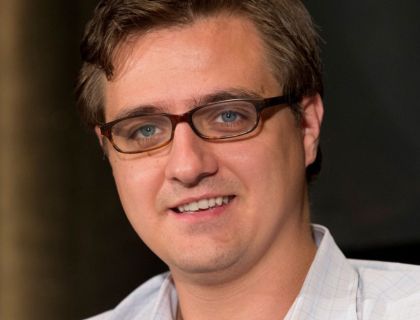Chris Hayes on the obscenity of private ownerhip of a social network

.
.
Because of its importance I have copied here the beginning Chris Hayes article in the New York Times. The full article is online.
While my own archive is just 1/12 the size of his, I feel similarly about protecting its contents from exploitation by a madman. I also want to see twitter or a similar network function and continue to give me multiple viewpoints and factoids.
.
“WHY I WANT TWITTER TO LIVE”
[Mr. Hayes, the host of “All In With Chris Hayes” on MSNBC and the author of “A Colony in a Nation,” is writing a book about attention for Penguin Press. He tweets at @chrislhayes].
My Twitter archive is over 6.4 gigabytes — more than 161,000 tweets over 15 years. It’s enough writing to fill about 10 books. What was going on when I tweeted, “Wait, which one?” in October 2008? I’ll never know.
I didn’t download the archive because I thought Twitter was going to die. Even my gravest fears about Elon Musk’s ownership did not involve him nuking the entire $44 billion property in under a month. But I did not want the sole record of my microblogging output to be owned by a red-pilled billionaire going through a midlife crisis.
If Twitter survives — and I fervently hope it does — its near-death experience has revealed something fundamental about our online lives: the digital spaces of civic life, the “public town square” as Mr. Musk deemed Twitter, have been privatized, to our collective detriment. Before Mr. Musk bought Twitter, its co-founder and former C.E.O. Jack Dorsey said of the platform that no one should own it, that it “wants to be a public good at a protocol level.”
Twitter is where I spend a good deal of my life. That’s partly because I’m an inveterate poster and have been most of my life and also because it allows me to synthesize vast amounts of information very, very quickly. Unlike message boards that are segmented by interest (Reddit, for example), Twitter is a place where all kinds of perspectives and obscure expertise are instantly accessible and overlapping.
Twitter began as a place to share mundane updates on one’s life but morphed into an arena where something akin to the global conversation was taking place. It was never particularly good at making money; its stock price barely grew from the day it went public, and in terms of its number of global users, it never surpassed Facebook. But it came closest to executing on the core vision of what the global town square could look like.
That’s why there was so much apprehension when Mr. Musk bought the site: No one man should have all that power. In under a month, almost all of the worst fears have manifested: He has solicitously courted some of the worst trolls, sent advertisers fleeing in droves and cut the staff down so radically that simple functions like two-factor authentication have at times stopped working and there’s a risk it will simply break down and stop working altogether.
Mr. Musk bought Twitter because he’s a Twitter addict and, more specifically, an extremely online attention addict. On his first day at Twitter he hauled around a bathroom sink to make an obscure, very online joke likely poking fun at a certain earnest kind of Twitter user (usually a liberal) who posts something appalling but also banal and says, “Let that sink in.”
. . .
.
.
This entry was posted in Blog and tagged Elon Musk, facebook, twitter. Bookmark the permalink.
Leave a Reply